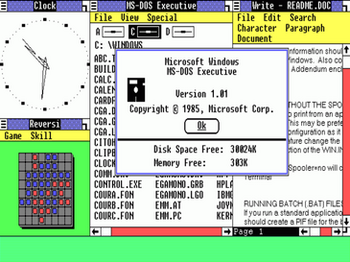It's part of the accepted wisdom of the technology community that
Apple Computer cofounder Steve Jobs is a paranoid, narcissistic jerk who has channeled his character flaws into both a cult of personality and a world-changing consumer-tech empire. I mean, you've got to be something of a high-profile jackass for
The Simpsons to devote and entire episode B-plot to punking you out, and since company culture often reflects the personality of its executive leadership, it's little wonder that
Apple has a long and glorious history of getting sued by unlikely people. (
Carl Sagan? Seriously?)
Still, it takes a special man and a special company to wage
a three-decades-long trademark war with The Beatles. The core of this dispute (pun intended) is that the holding company for most of The Beatles' intellectual property is Apple Corps, which felt that Jobs' and
Steve Wozniak's fledgling little tech concern was treading on their trademark turf. This dispute was settled in 1981 when Apple Computer paid Apple Corps $80,000 and promised not to enter the music business. So long as there was a clear separation between which company made tech and which company made (or, rather, licensed) music, everything was cool.
Then, in 1986, Apple started integrating
MIDI synthesizer chips into their computers, a trend that culminated in the
Apple IIGS line of desktops. To Apple Corps thinking, this was a breach of the settlement, so the Beatles IP-holder sued Apple Computer again. And won. And killed the IIGS line, along with any direct hardware integration of synthesizer or music-mixing tech into Apple computers.
Now, as they say, it was
on.
Apple resented the Beatles for nixing its foray into sound tech, and Apple Corps was watching Apple Computer like a hawk for any sign that Steve Jobs' company was treading anywhere near music industry territory. It got so bad inside Apple Computer that the company's legal department had to sign off on any
system sounds that may or may not be interpreted as "excessively musical."
Thus it came to be that in 1991 former Apple sound designer
Jim Reekes created a little file that has been in every
Mac OS since
System 7 -- one intended in part as a subtle, secret kiss-off to Apple Corps and their legal representatives for all the inconvenience their litigious oversight caused Apple Computer developers.
So, what secret F-U to the Beatles (or, at least, their lawyers) has been hidden in the Mac OS for almost 20 years?



![Reblog this post [with Zemanta]](http://img.zemanta.com/reblog_b.png?x-id=6e728a76-579a-49bf-b0f4-c3878a85a75c)